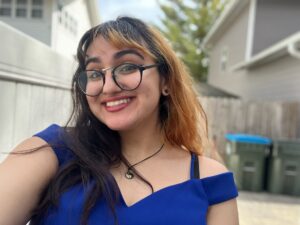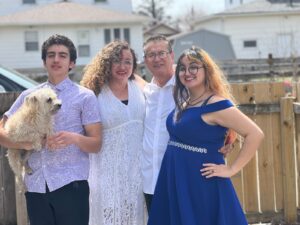By Yaramy Hernandez Marin

I am a 22-year-old, first-generation college student, who first set foot in the United States at the age of four. For most of my life, my family lived in California and while I realized early on that my family was different from others, this was okay with me since we were part of the vibrant Latino. But when we moved to Iowa, we were very clearly in the minority of the state’s population.
I became aware that it was the engrained racism that caused us to feel so different – that tried to make us feel inferior. I remember going to a grocery store with my mom, the everyday experience of buying food for the family. One time she was having trouble finding the type of beans she wanted to buy for dinner. She politely approached a store worker to ask if they had pinto beans. Before my mom could even breathe her first word, the worker stopped her and said, “I don’t speak Spanish.”

That phrase, “I don’t speak Spanish,” resonated in my mind and filled me with questions. Why did employee assume we only spoke Spanish? At the time, it was a concept that was hard for me to grasp. I knew my mom did not speak perfect English, but she had not even murmured a word before the store clerk stopped her. And this was something that kept happening to us: the moment people saw my family, they made assumptions based on our race. That is racial profiling. Unfortunately, I have experienced many occasions where my outward appearance has created obstacles as people make judgments based on my race. It has become obvious in America that race can be an advantage or disadvantage in life.
I recently attended a musical called Wounded Healers. The musical focuses on the obstacles and maltreatment that African Americans have faced since the Atlantic slave trade. It was a very moving yet infuriating performance to watch. The audience saw some of the brutal treatments that African Americans have and, in some cases, still experience and the detrimental effects of institutionalized racism. It also showed the beautifully creative ways the African American community has coped with and stood against racism: from the Underground Railroad to blues music, from peaceful protests to voting for representatives who will advocate against injustices.
This moved me and inspired me to call upon myself and others who view racism as a major problem: We must stand together and demand change to ensure our safety and that of future generations. We can help create a world where the race of a person will no longer be an issue or obstacle by educating ourselves and others to spot and fight the ongoing harm.
The author is a student at the College of Saint Mary in Omaha, Nebraska, and intern with the Sisters of Mercy in the Justice Department.